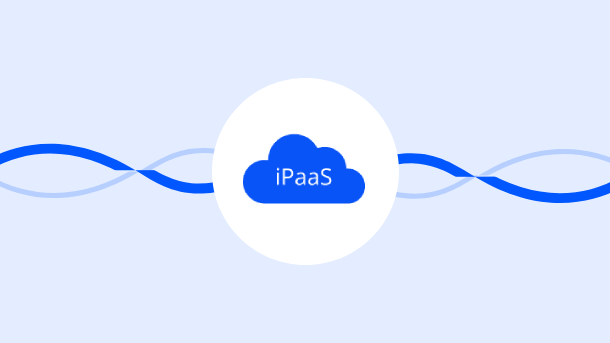
Hey there! Ever wondered how different software systems talk to each other seamlessly? That magic is often powered by something called iPaaS. Whether you’re a tech novice or a seasoned pro, this guide will break down iPaaS in the simplest terms.
Let’s dive in and explore what iPaaS is, how it works, and why it’s so beneficial.
iPaaS stands for Integration Platform as a Service. It’s a cloud-based solution designed to connect different applications and systems, enabling them to share data and work together effortlessly.
Imagine you have various tools like your CRM, ERP, marketing platforms, and more. iPaaS acts as a universal translator, ensuring they all speak the same language and work in harmony.
In today’s digital world, businesses use a multitude of applications to manage their operations. Without integration, these apps can become silos of information, making it hard to get a comprehensive view of your business. iPaaS breaks down these silos, ensuring seamless data flow and enabling better decision-making.
Now that you know what iPaaS is, let’s talk about why it’s a game-changer:
With iPaaS, you no longer need to switch between systems or manually transfer data. Everything is integrated, making your workflow smooth and efficient.
This can save you a significant amount of time and reduce the risk of errors
Custom integrations can be expensive and time-consuming to build and maintain. iPaaS offers a more affordable alternative by providing pre-built connectors and automation tools, reducing the need for costly development work.
As your business grows, so does your tech stack. iPaaS can easily handle the increasing volume of applications and data, allowing you to scale without worrying about integration issues.
Manual data entry is prone to errors. iPaaS automates data syncing across your applications, ensuring your data is always accurate and up-to-date. This leads to better reporting and decision-making.
Great question! iPaaS acts as a bridge between different software applications. Here’s a simple breakdown:
iPaaS links various applications, both on-premises and in the cloud. It uses pre-built connectors or APIs to establish these connections, making it easy to integrate new tools as needed.
Once connected, iPaaS standardizes the data from different sources. This process, known as data transformation, ensures that the information is in a consistent format, allowing all connected systems to understand and use it effectively.
With the data transformed, iPaaS facilitates the seamless flow of information between applications. This integration ensures that all your systems are up-to-date with the latest data, providing a unified view of your business operations.
iPaaS continuously monitors the integrations, ensuring everything runs smoothly. It provides real-time alerts and troubleshooting tools to quickly resolve any issues that arise, maintaining the integrity of your data flow.
Let’s dig a bit deeper into why businesses love iPaaS:
Automated workflows save time and reduce manual errors, allowing your team to focus on more strategic tasks rather than mundane data entry.
Real-time data integration means you have the latest information at your fingertips. This enables you to make informed decisions quickly, improving your responsiveness to market changes.
iPaaS is highly adaptable, allowing you to easily integrate new tools and applications as your business needs evolve. This flexibility ensures that your tech stack can grow and change with your organization.
Many iPaaS platforms are designed with non-tech users in mind. They offer drag-and-drop interfaces and intuitive dashboards, making it easy for anyone in your organization to set up and manage integrations.
iPaaS can be a lifesaver in various scenarios:
Integrate your online store with your CRM, inventory, and shipping systems to streamline order processing and improve customer satisfaction.

Sync data between your email marketing platform, CRM, and social media tools to create more personalized and effective marketing campaigns.
Connect accounting software with billing and invoicing systems to automate financial processes and ensure accurate financial reporting.
Link payroll systems with employee databases to streamline HR processes and improve data accuracy across your organization.
There are several iPaaS tools out there, each with its unique features. Here are a few popular ones:
Known for its robust data integration capabilities, Informatica Cloud offers a comprehensive suite of tools for connecting and managing data across various applications.
Dell Boomi provides a user-friendly interface and a wide range of connectors, making it easy to integrate different systems and automate workflows.
Mulesoft is great for complex integrations and API management. It offers powerful tools for connecting applications, data, and devices.
Jitterbit is known for its ease of use and powerful data transformation capabilities. It helps businesses quickly and efficiently integrate their systems and automate workflows.
Integrately is a user-friendly iPaaS tool designed for quick and easy integrations. It provides a vast library of pre-built automations, making it ideal for businesses looking to set up integrations without needing extensive technical knowledge.
| Feature | Description |
|---|---|
| Vast Library of Pre-Built Automations | Integrately offers a large selection of pre-built automations that cover a wide range of applications. |
| User-Friendly Interface | Designed for ease of use, even non-technical users can set up integrations quickly. |
| Quick and Easy Setup | Get started with minimal setup time, enabling fast implementation of workflows. |
| Supports a Wide Range of Applications | Compatible with many popular applications, making it versatile for different business needs. |
| Real-Time Data Syncing | Ensures data is updated across all integrated applications in real time. |
| Workflow Automation | Automates repetitive tasks, saving time and reducing manual errors. |
And there you have it! iPaaS is a powerful tool that helps businesses integrate their software applications seamlessly, saving time, reducing errors, and enhancing productivity.
Whether you’re a small business or a large enterprise, iPaaS can be a game-changer for your tech stack. Got more questions? Dive into the FAQs or explore some of the popular iPaaS tools we mentioned. Happy integrating!